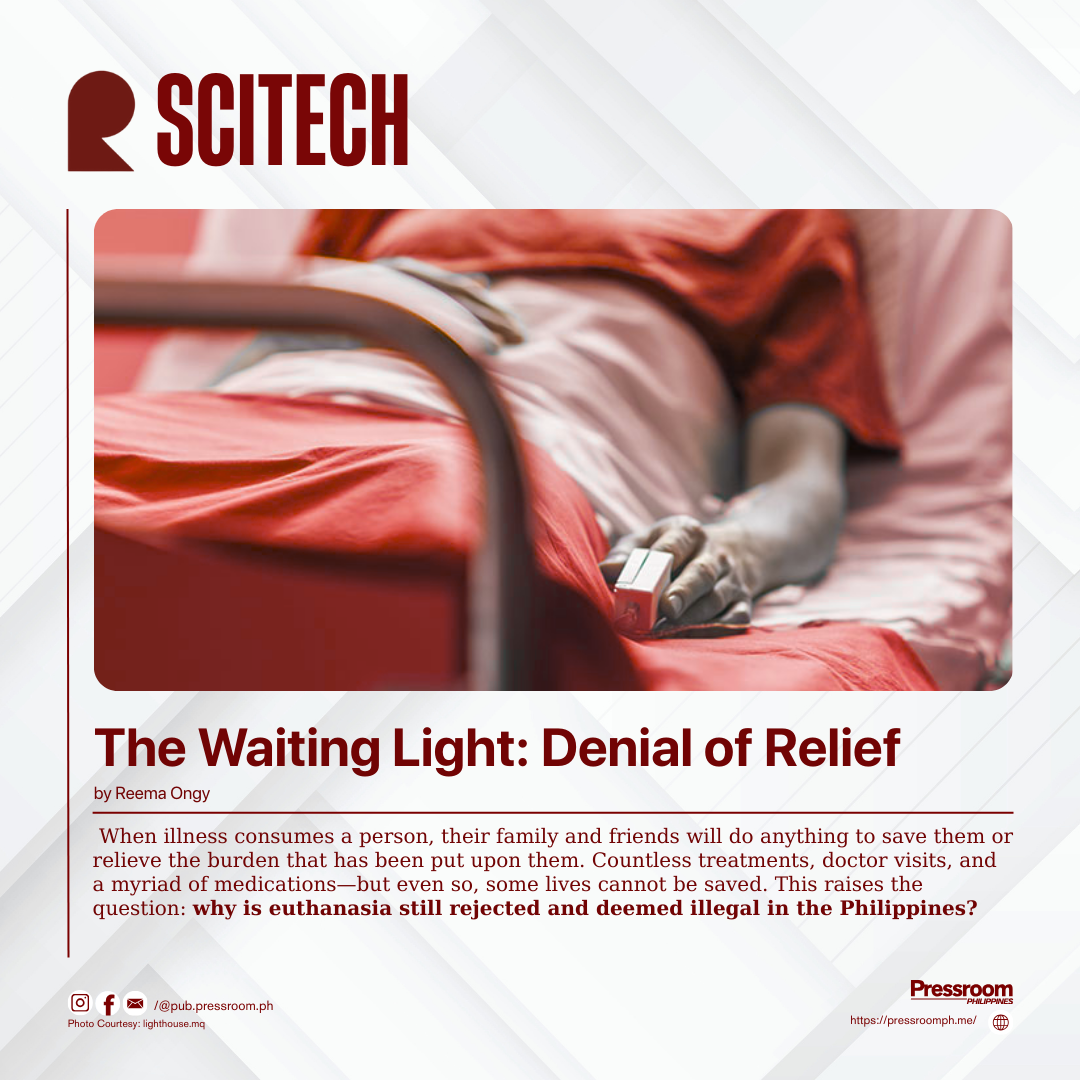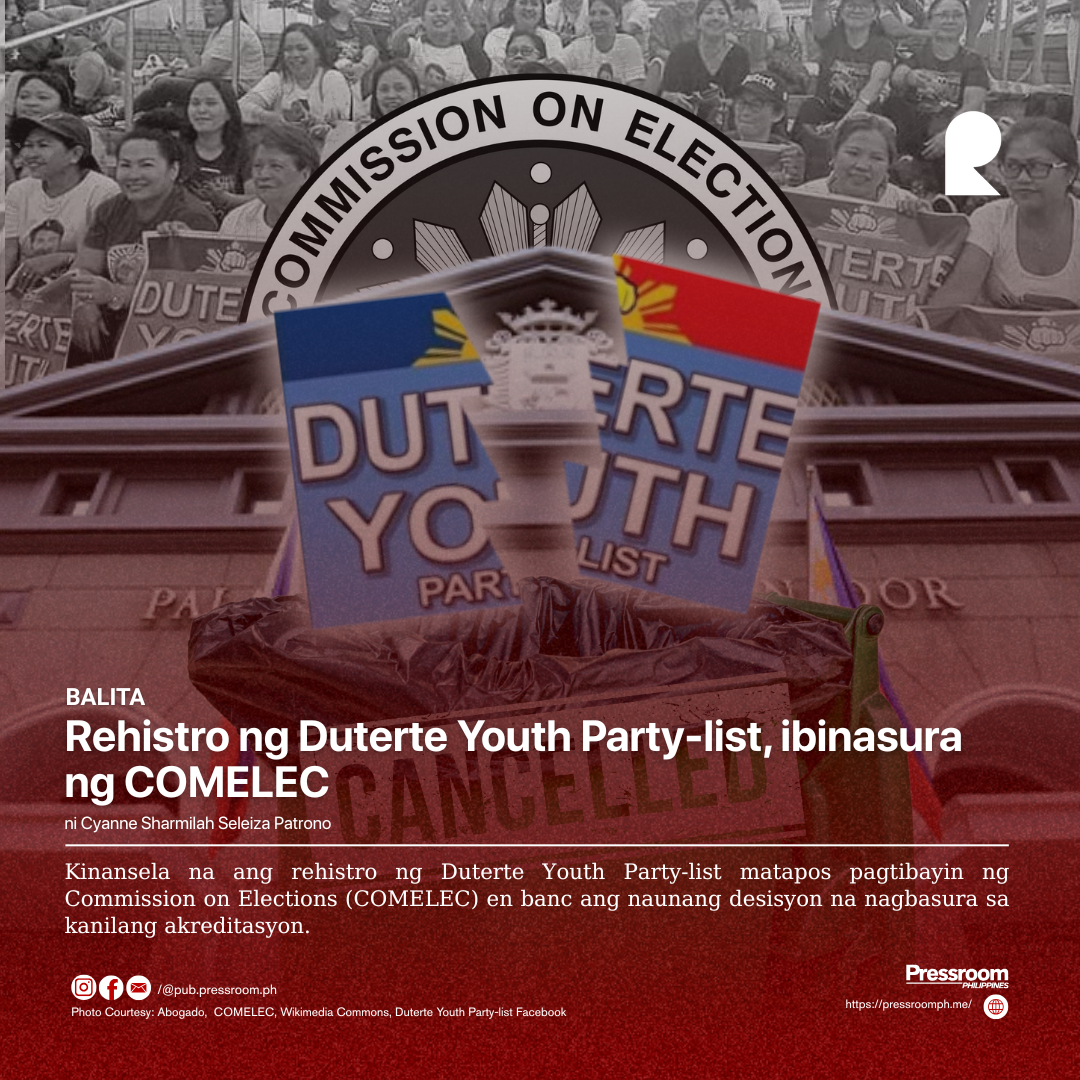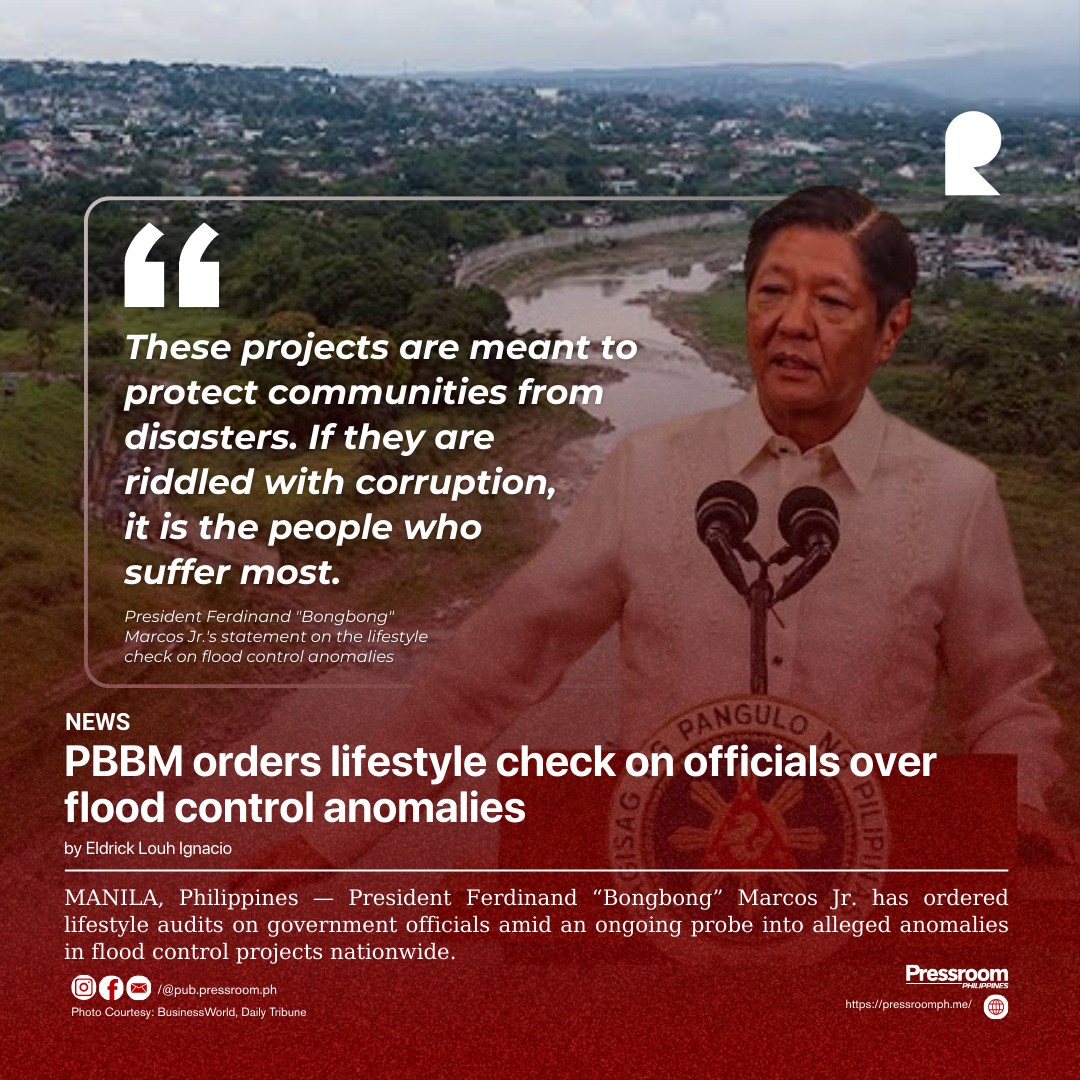via Reema Ongy, Pressroom PH
When illness consumes a person, their family and friends will do anything to save them or relieve the burden that has been put upon them. Countless treatments, doctor visits, and a myriad of medications—but even so, some lives cannot be saved. This raises the question: why is euthanasia still rejected and deemed illegal in the Philippines?
According to Philippine law, the act of euthanizing a terminally ill patient is strictly forbidden as of now, due to the deep ties of the country to the Catholic Church and its influence of letting a sickly or disabled person live a life as normal as possible. “All forms of suicide and euthanasia remain strictly prohibited… Voluntary cooperation in suicide is contrary to the moral law… Sick or handicapped persons should be helped to lead lives as normally as possible,” states the most recent edition of the Catechism of the Catholic Church (2003). Because of this, lives are kept. But despite this, it is without regard for the said ill person’s wishes.
While countries such as Belgium, Canada, Colombia, the Netherlands, and New Zealand have already legalized it, the Philippines is still driven by religious and cultural values and refuses to allow it.
The closest attempt we have gotten to legalizing euthanasia is seen in the Human Rights Advisory CHR-A12-2000, which states the proposal of legalizing it. The advisory recognizes “Right to [Self-Determination] REFUSE DIAGNOSTIC AND MEDICAL TREATMENT” in section 4(7) of said bill. Although the bill is still a proposal, it is good to see that there was still an effort to do so.
This so-called “moral and ethical” way of saving a person often causes more harm than good, because this is just denied relief masked as mercy. Despite the chances of recovery, however slim they may be, the patient’s life will be forever altered, placing an even heavier burden on them and their caretakers.
Although this topic is often avoided, especially in a country that is mostly made up of Christian population, it is still a much-needed talk that the country might not be ready to hear. Because euthanasia, even though contradicted by religious communities, still needs to be legalized for the benefit of the incurable and hopeless patients, including their relatives






